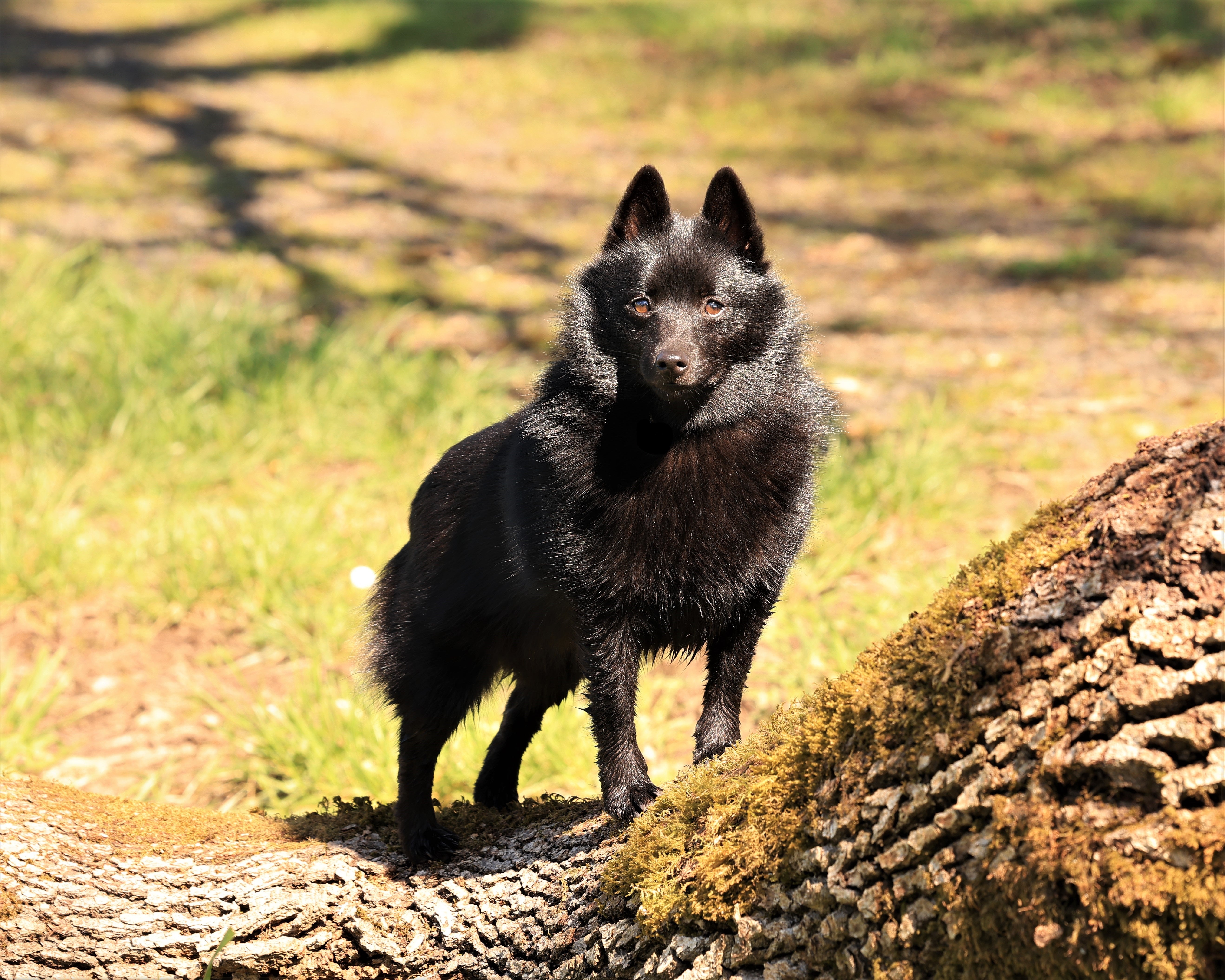Schipperke
The Schipperke is a compact and sturdy little dog with a striking appearance. Their square build, topped with a thick, double coat, gives them a distinctive silhouette. With their fox-like face and alert expression, Schipperkes exude a curious and mischievous charm. Beneath their small stature lies an agile and energetic dog, capable of smooth and graceful movement. Their naturally docked tails—or the curled tails of those born with them—combined with their pointed ears contribute to their Spitz-like appearance.
Breed characteristics carousel
Learn More
Need to Know
- Dog suitable for first-time owners
- Basic training required
- Generally healthy breed
- Enjoys active walks
- Small dog
- Some drool
- Requires frequent grooming
- Chatty and vocal dog
- Barks and alerts to visitors/anything unusual
- Could have issues with unknown dogs but gets along with known dogs
- Gets along with other pets with training
- May need additional supervision to live with children
- Needs a small yard or can happily live in the city
- Can be left alone occasionally with training
- AKC Registered Breed

Personality
The Schipperke dog is lively and intelligent with a bold and independent spirit. Known for their mischievous nature, these dogs are always on the lookout for their next adventure. While they can be affectionate with their family, Schipperkes tend to be reserved with strangers, making them excellent watchdogs. Their inquisitive nature and tendency to bark at anything unusual highlight the importance of training. Despite their spirited personality, Schipperkes can be amiable and pleasant companions when provided with sufficient exercise and mental stimulation.
Once working dogs on barges, tough little Schipperke dogs kept vessels free of rodents and deterred thieves. Though their exact origins remain debated, Schipperke’s first known appearance dates back to 1690, when they were shown at the Grand Palace of Brussels. Some theories link them to the now-extinct Leuvenaar or a blend of small Spitz-type dogs.
Regardless of their ancestry, the Schipperke has been a part of Belgian life for centuries, evolving from a working dog to a cherished companion. Once primarily found among working-class families, the breed gained royal patronage when Queen Marie Henriette adopted one, elevating its status and sparking broader interest.
Despite their adorably compact size, Schipperke dogs are surprisingly energetic and require an active lifestyle. The ideal owner appreciates their spunky personality and is prepared for regular training sessions to harness their intelligence and curb any potential stubbornness. They thrive in active households with owners who enjoy taking them along on their outdoor adventures.
Schipperkes are bundles of energy that require regular exercise to stay happy and healthy. Regular walks or playtime in a secure yard is essential for these lively dogs. Their intelligence and curiosity make them eager explorers, so opportunities for mental stimulation are equally important. While they can burn off energy indoors, a structured outdoor routine is crucial to prevent boredom and destructive behaviors.
Thanks to their small stature, the adaptable Schipperke dog breed doesn't need much room to make the most of their home. However, it would do the owner and their Schipperke well to have quick access to a fenced-in yard so they can easily expend their energy. Also, keep in mind that Schipperkes are excellent watchdogs, but close-by neighbors may not appreciate their alertness as much as their owner.
Schipperkes are relatively low-maintenance when it comes to grooming. Their double coat requires minimal attention, with occasional but regular brushing sufficient for most of the year. During shedding seasons, more frequent brushing can help manage loose hair. Regular nail trims are essential to prevent discomfort and maintain overall foot health.
Schipperkes are intelligent dogs that require consistent training. Their natural watchdog instincts can lead to excessive barking if not properly managed. While their independent nature can sometimes present challenges in training, patience is key, as well as positive reinforcement methods. Mental and physical stimulation are also crucial to prevent boredom and destructive behaviors.
Because Schipperkes require a bit more attention and outdoor adventures with their family, these pups are better suited to homes with older children who can take part in training and playtime.
The cost of a Schipperke from a breeder is significantly more than the cost of adopting one from a local shelter or rescue. The adoption fee usually covers additional items such as spaying or neutering, vaccines, and microchipping.

Learn more about feeding and caring for your Schipperke on Purina.
Did you know?
- Queen Marie-Henriette—the wife of King Leopold II and the first cousin to the then-future Queen Mary of England—shined a spotlight on Schipperkes in 1885 when she brought one home after seeing him at a show in Brussels. She named him Black as a nod to his
- Schipperkes became so popular after the Queen owned one that some sellers would even try to pass off similar-looking black dogs as Schipperkes.

